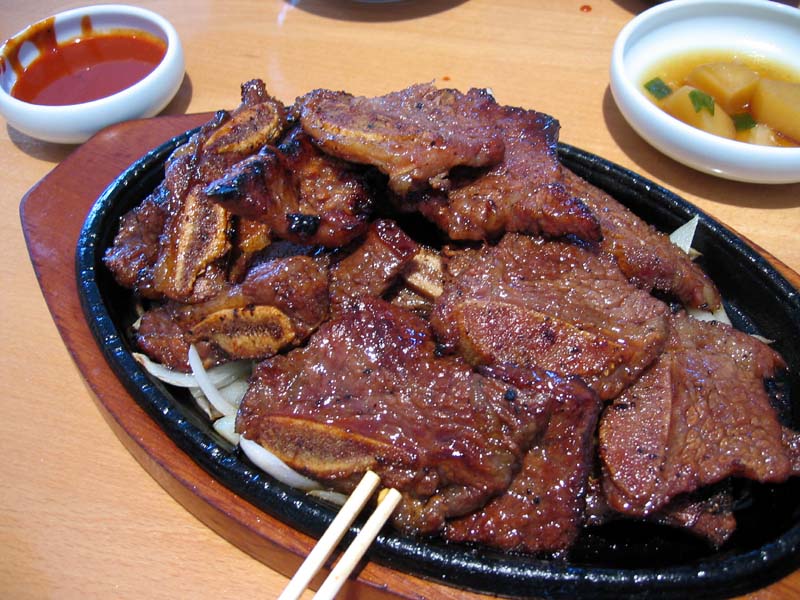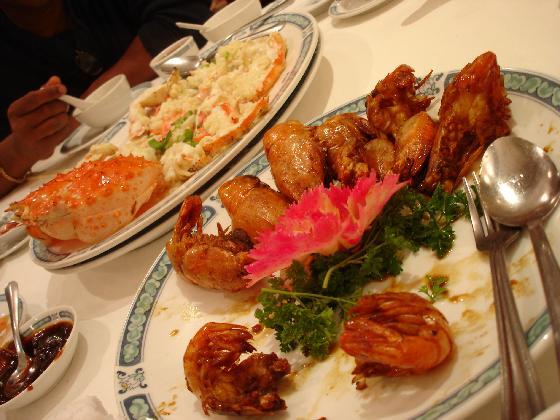When I think fine dining in Manhattan (Kansas), I think seafood, specifically mussels.
It’s like that WKRP episode where Mr. Carlson comes up with a fund-raiser theme – Surf City, USA, in Cincinnati, Ohio.
.jpg) I’ve eaten my share of mussels lately, and they all seem to come from Prince Edward Island – that’s in Canada, and a long way to ship a cheap bivalve (those are some New Zealand mussels, right).
I’ve eaten my share of mussels lately, and they all seem to come from Prince Edward Island – that’s in Canada, and a long way to ship a cheap bivalve (those are some New Zealand mussels, right).
Charlottetown, the provincial capital of the Rhode Island of the north, is reporting a probable outbreak of foodborne illness amongst 20 diners who ate at the Churchill Arms between 5 and 7:30 p.m. on Wednesday, April 7.
There is no food left for sampling from the suspect meals and the cause of the illness among those who were ill has not yet been confirmed. However, the symptoms reported are very suggestive of the Norwalk virus which has been identified in PEI recently in the community. The illness appears to have been limited to those who ate over the two and one half hour period that one night.

.jpg) It’s not a new concept; the big chain restaurant and grocery stores have been using outside consultants or their own people to ensure their food offerings produced and sold in a safe and hygienic manner. Government inspection sets a minimal standard that the best places strive to exceed – and no one wants to be written up in the local paper or have to display a lousy inspection result because of mistakes that could have been prevented.
It’s not a new concept; the big chain restaurant and grocery stores have been using outside consultants or their own people to ensure their food offerings produced and sold in a safe and hygienic manner. Government inspection sets a minimal standard that the best places strive to exceed – and no one wants to be written up in the local paper or have to display a lousy inspection result because of mistakes that could have been prevented..jpg) The number of points, and the severity of the penalties, vary with the offense; according to the department’s guide, a “woman in gray slacks carrying poodle on service line” is much less serious than a “woman in gray slacks carrying poodle on service line, man with mustache with a parrot on shoulder at the salad bar, a child with a rabbit at the dining table and a woman with a cat on a leash at coffee bar.”
The number of points, and the severity of the penalties, vary with the offense; according to the department’s guide, a “woman in gray slacks carrying poodle on service line” is much less serious than a “woman in gray slacks carrying poodle on service line, man with mustache with a parrot on shoulder at the salad bar, a child with a rabbit at the dining table and a woman with a cat on a leash at coffee bar.” While visiting family in Burlington, Vermont, the gang went out for lunch at Al’s Kitchen, where a young father pulled a
While visiting family in Burlington, Vermont, the gang went out for lunch at Al’s Kitchen, where a young father pulled a  Mary has an entertaining, R-rated version of the event
Mary has an entertaining, R-rated version of the event  Officials said four of the seven patients were hospitalized and one of them is still in a hospital.
Officials said four of the seven patients were hospitalized and one of them is still in a hospital..jpg) favors the idea. In a recent survey by my company, 83 percent of respondents said that they would like to have grades posted. …
favors the idea. In a recent survey by my company, 83 percent of respondents said that they would like to have grades posted. …
 And many more were repeatedly cited — but not closed — for other violations, the most common of which were leaving food out that should be refrigerated, failure to wash surfaces, and not providing hand washing stations to employees.
And many more were repeatedly cited — but not closed — for other violations, the most common of which were leaving food out that should be refrigerated, failure to wash surfaces, and not providing hand washing stations to employees. Ahmed AbdulRahman al Ali, the head of the municipality’s food inspection section, said the offenders were also slapped with a fine of more than Dh30,000, adding,
Ahmed AbdulRahman al Ali, the head of the municipality’s food inspection section, said the offenders were also slapped with a fine of more than Dh30,000, adding,